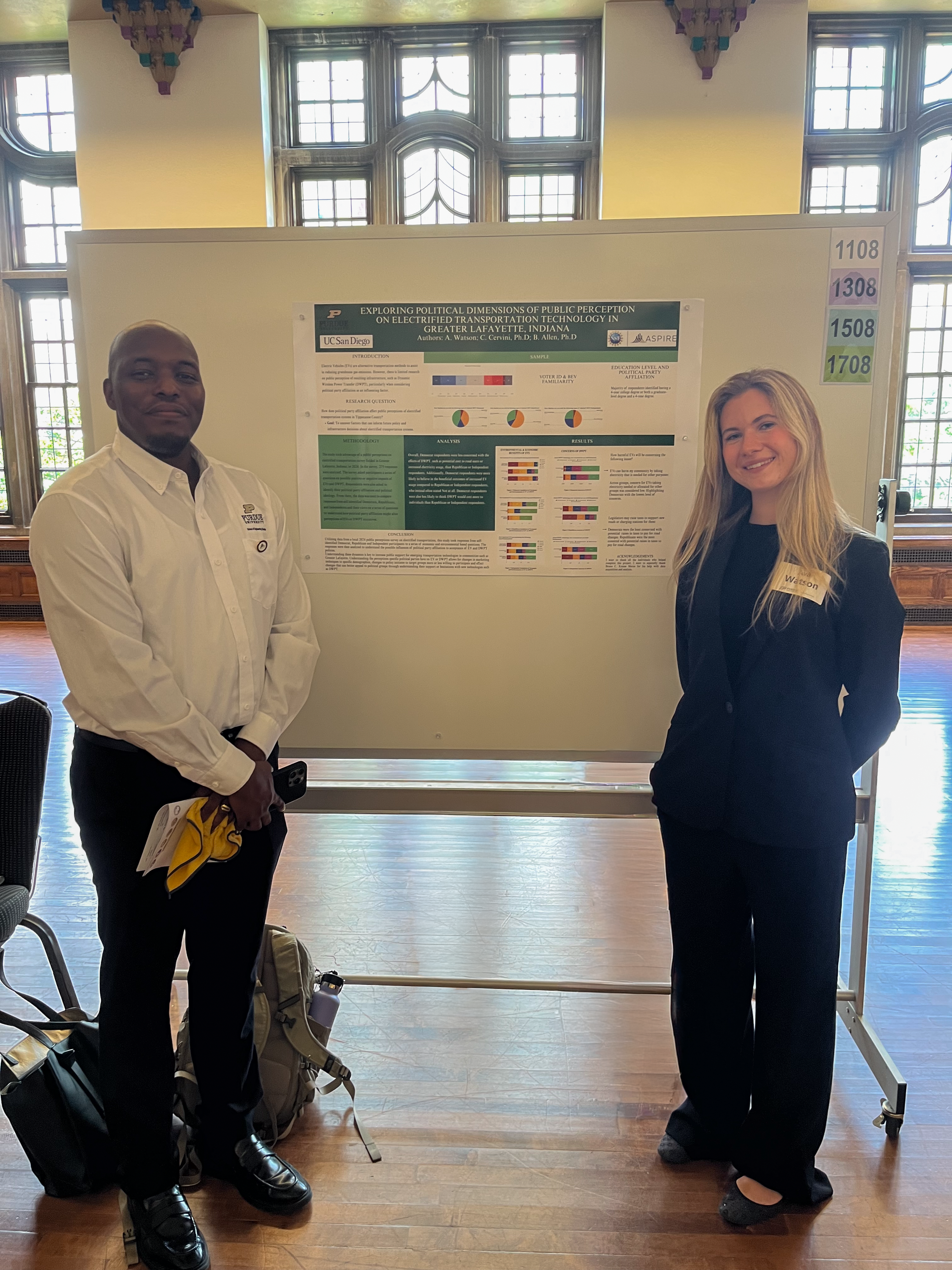ASPIRE’s New International Research Program Expands Opportunities

Next summer, ASPIRE is opening the doors to a global classroom through its new International Research Experience program. Thanks to the recently acquired NSF International Research Experience for Students grant, students will be selected to travel to the University of Auckland to discover the universal impact of ASPIRE’s research.
“This is an opportunity for students to understand ASPIRE, its research focus, and how we can have an impact on electrified transportation systems across the world,” said ASPIRE’s Co-Director of Electrified Workforce Development Brandon Allen. “Having an international experience — being able to engage with different communities and seeing different perspectives on electrified transportation and different points of view — is all an educational opportunity for them to throw into their own mental data bank the skills and knowledge that go with electrified transportation on a worldwide scale.”
Seven students will be selected each year for the next three years to spend 10 weeks conducting research at the University of Auckland. Students will also receive support, including a $7,000 stipend and one-on-one guidance from two faculty mentors — one in the U.S. and one at the University of Auckland — as they conduct research and explore new opportunities.
“Students will participate in different activities put on by the University of Auckland and its representatives, including tours and other field engagements in different regions of New Zealand,” Allen said. “They’ll have a lot of great opportunities to really engage with the culture, communities, research, and academic fields at the university.”

As students develop an appreciation for the culture and community in Auckland, they will have the unique experience of conducting research to contribute to the globalization of electrified transportation.
“Spending a summer at the University of Auckland would give students the opportunity to work at one of the leading research institutions worldwide when it comes to transportation electrification,” said Brittany Piquet, the ASPIRE Student Association (ASA) vice-president at Utah State University. “To me, that would give another perspective on the work that I already get to participate in. Transportation electrification is a broad topic. While we all work together, every institution is going at the problem in a different way and tackling different aspects of the research.”
An “Enhanced Version” of a Research Experience
ASPIRE has continually been invested in expanding research opportunities for students. Through the ASPIRE Research Experience for Undergraduates (REU) program, students from non-ASPIRE campuses across the nation conduct research at ASPIRE with the help of a faculty mentor, allowing them to engage in meaningful research, according to former REU participant Aaron Paddy.
“Being part of this program has given me the chance to work closely with experienced mentors and peers who challenge and inspire me,” Paddy said. “More importantly, it’s sparked a stronger interest in research, which I had never seriously considered before this experience.”


Building on the development of the ASPIRE REU program in previous years, this international program offers even greater learning and professional development opportunities.
“I think that this is a great opportunity for ASPIRE to take what we’ve been doing for the last five years, which has been very successful, and offer this enhanced version,” Allen said. “It’s not just an international trip, but a program that takes research a step further.”
Unlike the REU program where students are external to ASPIRE, this international opportunity is available to all undergraduate and graduate students, regardless of their campus, who are interested in electric vehicles and roadways. This experience will equip them with valuable skills that can open the door to future opportunities.
“Because we’re working directly with one of our international partners, it allows students to see the value in the work that we’re doing, the future outlook of job opportunities globally, and become interested in ASPIRE-related research,” Allen said. “Then you have someone who is equipped with certain skills that can now be a benefit to the center as it grows and develops.”

And students, like mechanical engineering undergraduate Hope Miller, are excited to be considered.
“I think it’s cool for students to go out, see places outside of their own university, and gain experiences with other people and workforces” said the secretary of the ASA at Utah State University. “Being able to explore different dynamics and see similar things in a new way while exploring other places, like Auckland, New Zealand, sounds like a pretty cool opportunity.”
Applications will open this September and close in December. After applications have been reviewed and interviews have been conducted, the selected candidates will be notified in the spring to prepare for this exciting summer research experience.
For students interested in additional information about applications and this program, please reach out to Brandon Allen, the program co-director.
About ASPIRE:
ASPIRE, a National Science Foundation Engineering Research Center headquartered at Utah State University, leads groundbreaking research and development to accelerate electrification. With over 400 global collaborators, ASPIRE focuses on creating seamless, affordable electrified transportation systems, accessible for all vehicle classes, along with the public infrastructure needed to support them. By reducing emissions, improving air quality, and fostering economic growth through job creation and workforce training, ASPIRE’s work spans engineering, social science, policy, and business. Partnering with top universities, industry leaders, and community groups, ASPIRE is driving the future of advanced transportation. Learn more at aspire.usu.edu.
Contacts:
Brandon Allen
Co-Director of Electrification Workforce Development
ASPIRE ERC
Writer:
Kayleigh Kearsley
Marketing & Communications Intern
ASPIRE ERC